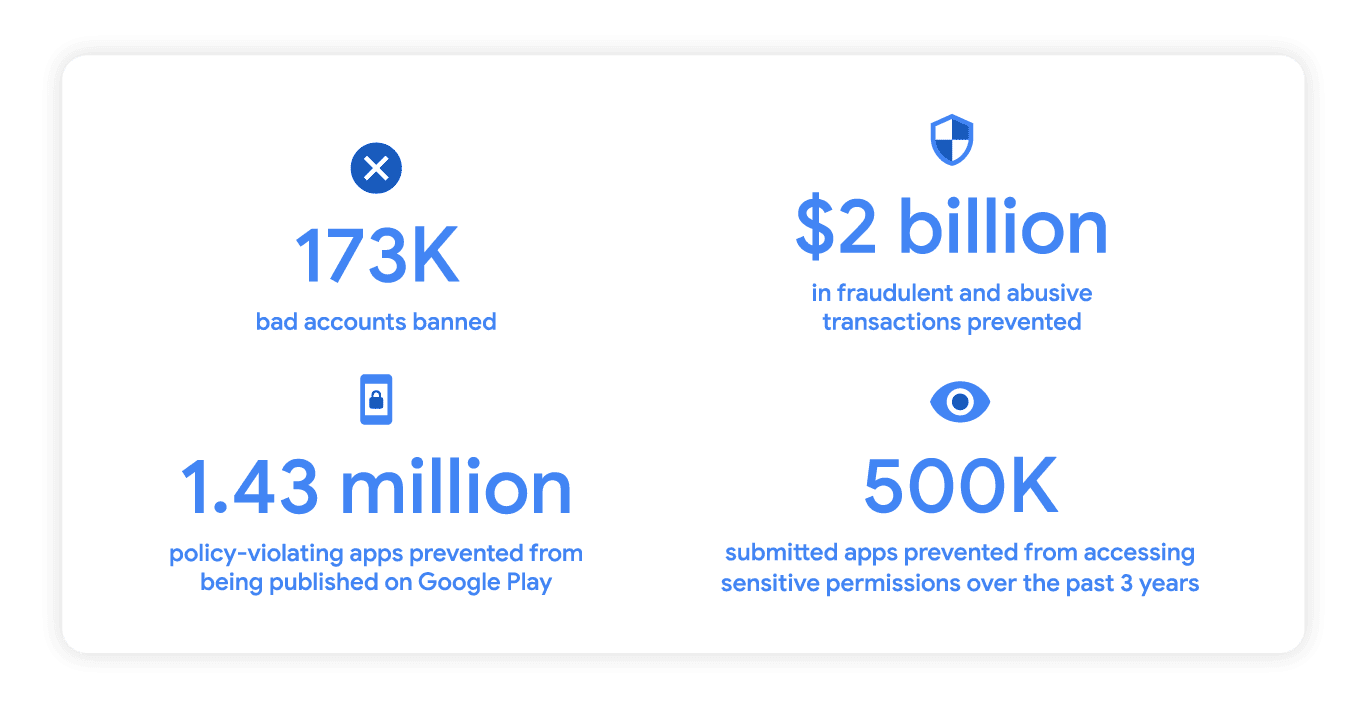Google also implemented new policies for developers offering personal loans in India, requiring them to disclose partner NBFCs and banks in app descriptions.
Google in India last year removed more than 3,500 personal loan apps from the Play Store for violations of the Play policy requirements, the company announced in its latest annual Play Protect report.
For those unaware, Google Play Protect is a security feature built into Android devices that scans apps for malicious behaviour and alerts users about potentially harmful apps. Let’s look at how the feature kept Android devices safe last year.
More stringent policy for personal loan app developers in India
After revising its Play Store developer program policy for financial services apps in 2021, Google last year introduced additional requirements for developers offering personal loans in India as facilitators on behalf of NBFCs and banks.
“In 2022, in India, we introduced additional requirements for developers offering personal loans in India as facilitators on behalf of NBFCs and banks, requiring them to also prominently disclose the names of all their partner NBFCs and banks in the app’s description and provide a live URL to the respective websites of partner NBFCs and banks where they are listed as an official agent, as part of the Personal Loan App Declaration,” Google said. Google continues its fight against malicious apps on its official app store (Image: Google)
Google continues its fight against malicious apps on its official app store (Image: Google)
1.43 million policy-violating apps blocked
Last year, Google blocked 1.43 million policy-violating apps from entering the Play Store. The company says that this was “in part due to new and improved security features and policy enhancements, in combination with our continuous investments in machine learning systems and app review processes.”
173K bad developer accounts banned
Google continues its fight against malicious developers and fraud rings, banning 173K bad accounts and preventing over $2 billion in fraudulent and abusive transactions. The company has also strengthened its verification process, saying that developers last year had to use email, phone, and other verification methods to join the Play ecosystem.
Also read | Why you shouldn’t use Google Authenticator 2FA code cloud backup feature
500K apps stopped from requesting sensitive permissions
Sensitive permissions are those that allow apps to access users’ personal information, such as contacts, location, camera, microphone, SMS, and call logs.
Google says that by enhancing the security and policies of the Android platform, and by providing guidance and training to developers, the company stopped about 500K apps from requesting permissions that could compromise users’ privacy and data over the past three years.
500K security weaknesses fixed
App Security improvements helped developers fix 500K security weaknesses affecting around 300K apps with combined installations amounting to 250B, according to Google. “We also launched the Google Play SDK Index to help developers evaluate an SDK’s reliability and safety and make informed decisions about whether an SDK is right for their business and their users,” added Google.
Pixel phones get new security and privacy features
Pixel devices have received powerful new features that enhance their security and privacy. All Pixel phones that run on Android 13 can access these new settings, which benefit millions of users every month. Moreover, Pixel phones can use Private Compute Core to scan for malicious apps in a way that protects users’ privacy.

Source:indianexpress.com

